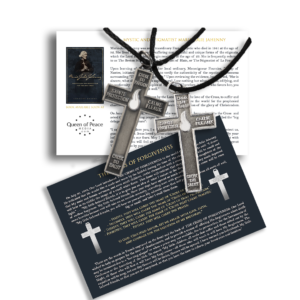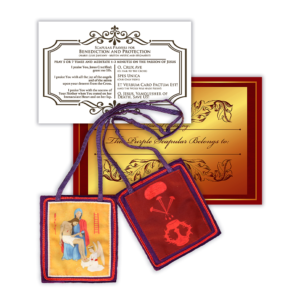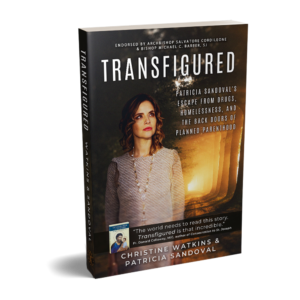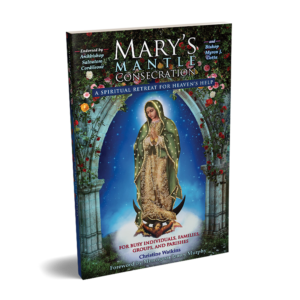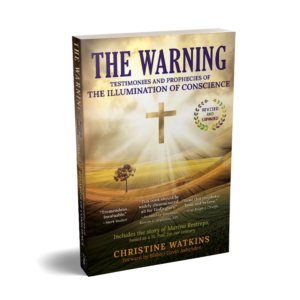
Nothing makes us so God-like as our willingness to forgive. – St. Thomas Aquinas
To be clear; people are not doormats or punching bags. Forgiveness does not mean condoning or enduring violence and abusive behavior.
Forgiveness heals and that, first and foremost, is what is so powerful about seeking and receiving God’s forgiveness in the sacraments of His Church.
In our wretchedness, particularly in times of mortal sin, we can sprint to the confession line for God’s mercy.
Our hope is firm because, in his Son, ‘we have redemption, the forgiveness of sins.’ We find the efficacious and undoubted sign of his forgiveness in the sacraments of his Church. (CCC #2839)
Sadly, when it comes to forgiving those who have trespassed against us, or humbly asking forgiveness of those we have injured, we can often find ourselves miserably entangled in an angry web of pride and self-righteousness. That’s when we begin to pick and choose – making a cafeteria buffet out of the Word of God – and blindly pass over a simple two-letter word.
“As” makes all the difference in this world and in eternity. The Word of God and the teaching of the Church is crystal clear.
And forgive us our trespasses, as we forgive those who trespass against us. (Matthew 6:12)
This petition is astonishing. If it consisted only of the first phrase, “And forgive us our trespasses,” it might have been included, implicitly, in the first three petitions of the Lord’s Prayer, since Christ’s sacrifice is “that sins may be forgiven.” But, according to the second phrase, our petition will not be heard unless we have first met a strict requirement. Our petition looks to the future, but our response must come first, for the two parts are joined by the single word “as.” (CCC 2838)
“Now – and this is daunting – this outpouring of mercy cannot penetrate our hearts as long as we have not forgiven those who have trespassed against us. Love, like the Body of Christ, is indivisible; we cannot love the God we cannot see if we do not love the brother or sister we do see. In refusing to forgive our brothers and sisters, our hearts are closed and their hardness makes them impervious to the Father’s merciful love…” (CCC #2840)
‘You wicked servant! I forgave you your entire debt because you begged me to. Should you not have had pity on your fellow servant, as I had pity on you?’ Then in anger his master handed him over to the torturers until he should pay back the whole debt. So will my heavenly Father do to you, unless each of you forgives your brother from your heart. (Matthew 18:32-35)
No one heals himself by wounding another. – St. Ambrose of Milan
How much longer must those who live as the object of your unwillingness to forgive suffer your vengeance?
Wrath and anger are hateful things, yet the sinner hugs them tight. (Sirach 27:30)
What will it take for those who refuse to forgive before they fall on their knees and beg for the grace to forgive as Christ forgives those whose sin scourged his flesh and nailed him to the cross?
Who has suffered injustice and agony at the hands of another more than Christ?
Who has more to forgive than the Son of God?
What will it take for the hardened of heart to humbly acknowledge the injury they’ve caused another and ask forgiveness?
Living as one who is unforgiven is like living as a wing-clipped bird. Living as one who refuses to forgive is like living as an emaciated prisoner chained to a wall in a dark, musty cave. Hearts grow hard and love grows cold with every day that we neglect to ask for forgiveness or forgive someone who has trespassed against us.
To forgive is to set a prisoner free and discover that the prisoner was you. – Lewis B. Smedes
Forgiveness, even if it begins as a prayerful, unspoken intention in your heart, can be blessed by God with a trickle of grace that opens the flood gates of love, mercy and reconciliation. Forgiveness is a balm that mends the broken heart and restores peace and balance to the family – the domestic church. Forgiveness can fill an old, empty marriage vessel with the best, new wine.
Integral to forgiveness, particularly asking forgiveness, is forgiving yourself. The enemy of Love Himself would delight in nothing more than for us to live in a perpetual state of self-loathing and condemnation when God and those we have offended have forgiven us.
As one forgiven, you must claim the liberating love and mercy of God that shatters the shackles of the past that once enslaved you.
For as the heavens are high above the earth, so great is his mercy toward those who fear him; as far as the east is from the west, so far does he remove our transgressions from us. (Psalm 103:11-12)
Sacramentally confess your failure to forgive or your refusal to accept an apology as you harbor anger and bitterness.
Humbly ask forgiveness of those you have offended. Forgive others and mend your ways.
Ask God to roll away the stone that imprisons your soul in the pitch black tomb of unforgiveness. Open wide your heart to the floodgates of Easter grace and the transformative power of Christ’s illuminating resurrection.
I had a long distance phone conversation with my father as he laid in an I.C.U. bed a short time before his death. His speech was labored and his words were faint. Every fiber of his being was straining to remain in the moment following colon surgery and the heart attack he suffered while still unconscious in the recovery room. This was the last conversation I had with my father which ended with these words:
Brian: I love you, Dad.
My Father: I love you too, Brian. It’s amazing what it takes to realize it.
Lord, I desire to forgive. Please soften my heart and give me the grace to forgive.
Mary, Mother of Mercy, pray for us.
© 2023 Brian Kravec
Brian is a cradle Catholic, husband and father. He’s a writer, speaker, and the Co-Founder and Executive Director of Possibility Productions, a 501(c)(3) faith event evangelization apostolate in service of the Body of Christ.
